Posted: April 2, 2013
Extract from Independent.ie Tuesday April 2nd
By John Mulligan
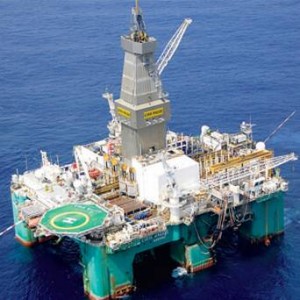
“Oil giant ExxonMobil kicks off a $160m-plus (€125m) drilling programme off the west coast of Ireland this weekend with hopes that confirmation of major fossil fuel reserves will transform the country’s economy.
The US company is planning to drill test wells over a four-month period at two prospects at the Dunquin licence area in the Porcupine Basin, 200km off shore.
Previous data has suggested that there could be over 300 million barrels of oil and 8.5 trillion cubic feet of gas between the two Dunquin prospects.
If they could be proven and then extracted, such finds would mark one of the biggest ever global discoveries of oil and gas and be a game-changer for Ireland’s economic fortunes.
Hidden
But despite the 200 or so wells drilled off Ireland’s shores in the past number of decades, only two have resulted in commercial fields – Kinsale and Corrib.
Both are minnows compared to the prospective resources that could be hidden at Dunquin. Kinsale had about 1.5 trillion cubic feet of gas, while Corrib has about one trillion.
Located at a point in the Atlantic where the ocean is 1.6km deep, ExxonMobil’s drilling programme is being eagerly watched by oil companies from abroad and Ireland, including Petrel Resources, which has an exploration block just 35km away from the Dunquin prospect.
ExxonMobil controls 27.5pc of the Dunquin prospect, with Italian firm Eni holding another 27.5pc.
Spanish energy firm Repsol owns 25pc and UK-based Sosina has a 4pc interest. Irish exploration firm Providence Resources has a 16pc interest in the prospect. A major oil or gas find could catapult its shares higher.
The Dunquin prospect – where the reserves are as deep as 3.6km under the seabed – is one of the most important exploration areas for Providence, which is headed by Tony O’Reilly Jnr.
Providence is also betting that it could have a major oil find on its hands at a site called Barryroe, which is close to the Kinsale field. The company reckons that there could be 280 million barrels of recoverable oil at the Barryroe prospect.”
http://www.independent.ie/business/irish/oil-giant-exxon-starts-160m-drilling-project-off-west-coast-29163728.html
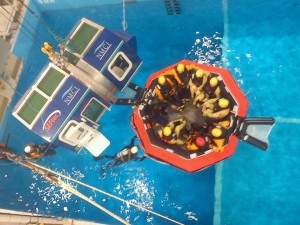
Sign Up to our Newsletter
Click Here
Posted: March 21, 2013
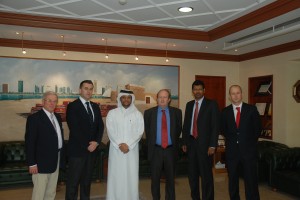 On 14 March 2013, His Excellency Sheikh Saoud bin Abdulrahman Al-Thani, Minister of Sport & Secretary General of the Qatar Olympic Committee (QOC) is pictured with Board Members of SEFtec NMCI Offshore (“SNO”), Conor Mowlds (pictured 2nd from left) and Darren O’Sullivan (pictured 4th from left). This was taken prior to the signing of a Memorandum of Understanding between SEFtec NMCI Offshore and IRM Offshore to provide support for the development of dedicated TEMPSC coxswain training facility in Qatar over the next 12 months.
On 14 March 2013, His Excellency Sheikh Saoud bin Abdulrahman Al-Thani, Minister of Sport & Secretary General of the Qatar Olympic Committee (QOC) is pictured with Board Members of SEFtec NMCI Offshore (“SNO”), Conor Mowlds (pictured 2nd from left) and Darren O’Sullivan (pictured 4th from left). This was taken prior to the signing of a Memorandum of Understanding between SEFtec NMCI Offshore and IRM Offshore to provide support for the development of dedicated TEMPSC coxswain training facility in Qatar over the next 12 months.
Sign Up to our Newsletter
Click Here
Posted: February 18, 2013
“Shipping and other companies from the Middle East and beyond will be sending more workers for expert training in Cork over the next year.
By Niall Murray, Education Correspondent
The National Maritime College of Ireland (NMCI), part of Cork Institute of Technology, has facilities among the world’s best for training new and experienced workers in the shipping industry.
Among the 72 graduates of NMCI whose awards were conferred yesterday were a number from the Seychelles who have completed marine and plant engineering degrees.
The college opened in 2004 as the country’s first third-level public private partnership, and works closely with the Irish Naval Service whose national base is alongside its Ringaskiddy location.
The commercial arm of the college and associated companies have been offering training since 2010 on the hi-spec equipment, with particular interest from shipping and related companies from the Gulf region.
Further expansion of training and consultancy services to places such as United Arab Emirates, Vietnam, and Malaysia is planned in the year ahead, in line with more research and commercial training being planned.
“The short specialist courses we run here have been bringing in people from transport in the oil and gas sectors, people in big ports and other related areas,” said CIT’s vice-president for development Michael Delaney.
“We also help train people who will teach their colleagues back at home and offer a certain amount of follow-up training where their companies are located, it could be the Middle East or elsewhere.”
As well as the training jobs in the college on its equipment, which includes a simulator that allows students navigate super-tankers into any port in the world, employment is supported in connected local industry. Cork and Irish companies are developing software and machinery based on the needs of the merchant shipping industry, while training in its use can then be provided at the NMCI or overseas.
There are now 10 full-time research jobs at NMCI, and CIT president Brendan Murphy told graduates that expanding the research and training roles there are key to the college’s continued success.
The ceremony yesterday also saw masters degrees awarded to 12 graduates of CIT’s Crawford College of Art & Design.”
Picture: At the National Maritime College of Ireland conferrings, Ringaskiddy, Cork, Bachelor of Science in nautical science graduate Jean Paul, from the Seychelles, presents flowers to his girlfriend Melanie Dopplinger, Austria; Pictures: Darragh Kane
http://www.irishexaminer.com/ireland/maritime-college-to-train-global-workers-222759.html
Friday, February 15, 2013
Sign Up to our Newsletter
Click Here
Posted: February 11, 2013
Australia’s oil and gas workers enjoyed the highest average salaries in the industry in 2012 due to a skills shortage, with expatriates pocketing $171,000 a year, a study said on Friday.
Despite uncertain global economic conditions, wages in the oil and gas industry rose globally by 8.5 percent in 2012 to $87,300, according to Hays Oil and Gas Job Search. That follows an average increase of 6.5 percent in 2011.
“There would be few industries with such a track record of growth over the last few years in what has been, in the most part, an uncertain economic environment,” the report said.
World oil production in 2012 grew by 2 percent from the previous year to 89.17 million barrels per day and is expected to increase 1 percent this year, according to the U.S. Energy Information Administration.
Expatriates in Australia topped the list, and Norway came second, according to the survey, conducted among more than 25,000 employees. Among local hires, Australians workers were also the highest earners, with an average wage of $163,600.
“At the top of this year’s table, we once again see Australia and Norway. Both countries have limited skilled labour pools and significant workloads. The result is very high pay rates, although both would appear to have met some sort of ceiling,” the report said.
Australia is preparing to become one of the world’s largest liquefied natural gas (LNG) exporters, with 190 billion Australian dollars ($196.2 billion) worth of projects currently underway, requiring a vast workforce.
The average wage in the United States was significantly lower at $123,800. At the other end of the spectrum were expatriates in Sudan, who according to the survey, earned $59,800 in 2012. Wages tumbled in Iran, whose oil and gas production contracted last year as a result of Western sanctions over its disputed nuclear programme. The average expatriate salary in Iran dropped 27 percent in 2012 to $68,100, while the average for local employees fell 10 percent to $46,900, the study found. “Where imported salaries are concerned, it is once again the frontiers of the industry that are pushing the upper limits of pay. Representing a mix of danger money and hardship allowance in these base salaries, we find Russia’s Arctic exploration driving imported skills, and China’s drive on non-conventional skills also pulling in experts on premium rates,” Hays Oil and Gas Job Search said. The risks involved in some exploration and production regions were laid bare last month in Algeria, where Islamist gunmen attacked a gas plant, which led to the deaths of at least 38 local and foreign workers. Expatriate salaries in Algeria averaged $92,400 last year, according to the survey, which was conducted before the attack. As for areas of expertise, vice presidents and directors of subsea pipeline projects earned the highest average wages at $251,200, up 9 percent from 2011. Graduate salaries increased 12 percent to just under $40,000 in 2012. In an industry counting around 5 million people across the world, 47.4 percent are expatriates, with the remainder employed locally, the report said. ( C) Reuters
For more information and news please see http://www.fxcentre.com/news.asp?3033334
Sign Up to our Newsletter
Click Here
Posted: December 9, 2011
Are you in need of OPITO approved training in the New Year? We have released our 2012 course schedule which includes Basic Offshore Safety Induction & Emergency Training, Minimum Offshore Industry Safety Training and Further Offshore Emergency Training.
Our offshore course are designed to provide delegates with a basic knowledge of safety and emergency response procedures for working in offshore environments.
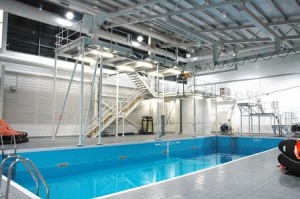
Perhaps you are in need of refresher training?
The FOET is a 1-day course which refreshes your existing BOSIET certificate for a further 4 years.
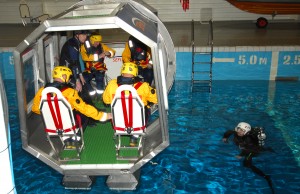 For further information just contact us on + 353 21 4970 609 or email us info@seftecnmcioffshore.com
For further information just contact us on + 353 21 4970 609 or email us info@seftecnmcioffshore.com
Sign Up to our Newsletter
Click Here







Connect with NMCIS